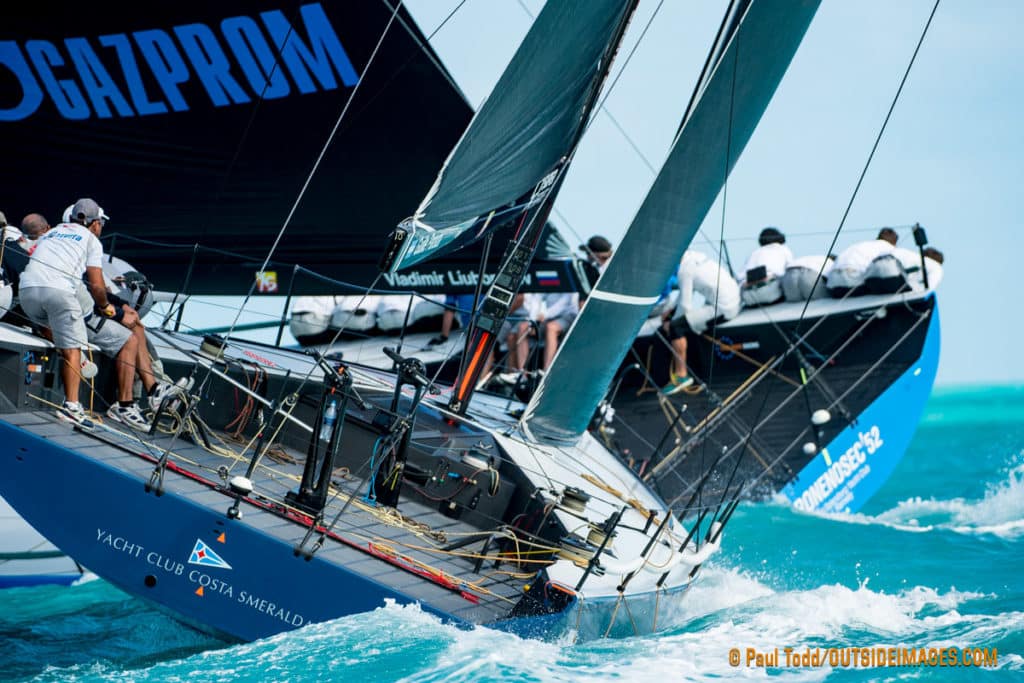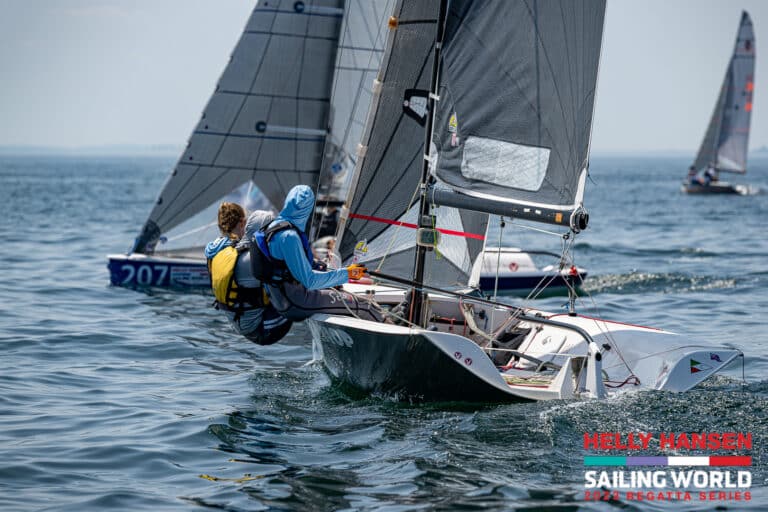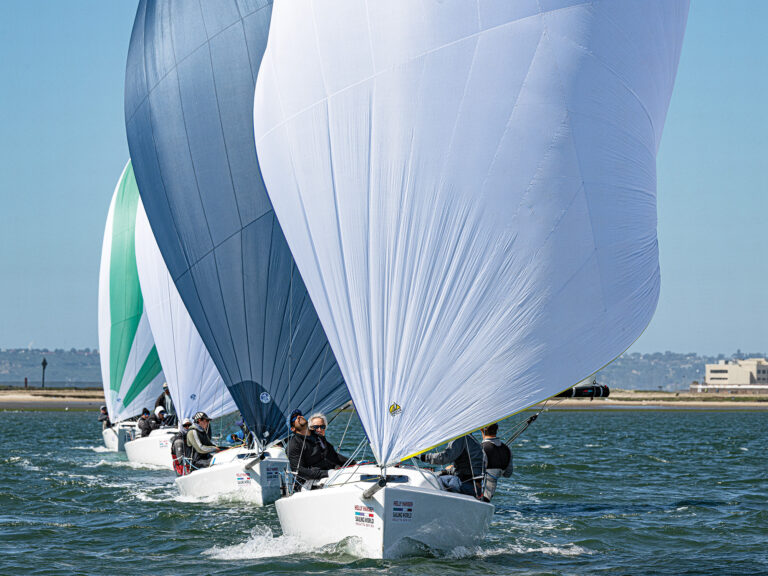
I’ve said it many times, it’s something you hear a lot around there: Key West Race Week is a long regatta. Five days and 12 races. It seems to go on forever, which is not such a bad thing. But is does cause one to think about how to maintain consistency and excellence for the whole regatta.
Obviously preparation is critical, because any weakness will eventually be punished. But the other thing that comes to mind is the concept of continuous improvement. This is pretty simple in theory: Getting a little bit better each day by careful analysis of the previous day. In practice, it’s a little bit harder, because we have to take the important lessons, but not get sidetracked by random events. Let’s look at what continuous improvement means in each area.
First is starting. You are never going to have a good regatta in a tough fleet unless you can consistently get off the line well. So you need come into the event with some basic skills, but then you need to work on starting each day to gradually improve both boathandling and time and distance. Fortunately, it’s not hard to practice, and I think if you put the time into doing a couple of practice starts before each race you will be well rewarded. As your skills improve, it becomes easier to consistently set up in a way that allows you a front row start.
Second is boatspeed. This is very important here. There is often a relatively steady wind, and more waves than wind, so you don’t want to tack too much. You have to get faster if you expect to get on the podium.
I think the key is to every day make a small step forward in rig tune, steering technique, weight placement, and jib leads. Copy the fast guys and don’t be afraid to make changes. The mistake many sailors make is to make big changes, when often a small change is more appropriate.
Thirdly, boathandling. This is actually the easiest area to make small gains each day. If you talk about each maneuver with your whole crew after the race, there are always ways to do it a little better. One second later on the spinnaker halyard, backing the jib a tiny bit on the tack, a little bow down on the spinnaker drop, it all adds up to seconds on the course, and those seconds can make a difference, especially when it gets really tight. Developing great boathandling does wonders for a team’s confidence.
Let’s hope we can practice what I preach when things get going here on Monday.









